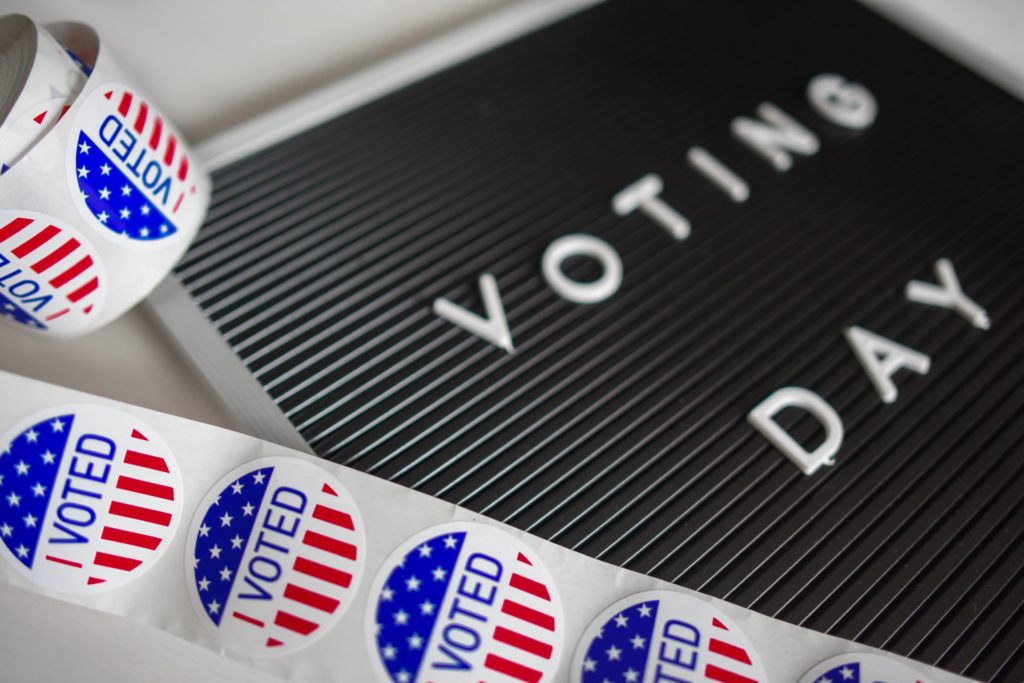I’ve been moderating Braver Angels workshops for around two years, and there are several experiences that have been consistent for me from one workshop to the next. Among these is listening to the conclusions that participants draw from their time with us. Without fail, at least one participant will mention how much closer the two sides are in their values and beliefs than they’d realized. But nearly as common is the realization that one’s own side has such a wide spectrum of belief, rather than the monolithic front that is often presented in the media narrative.
Braver Angels instructs workshop attendees that they are there to represent their own views, not those of their chosen color or party affiliation. And this highlights the spectrum of perspectives that our participants get to see so clearly, which reflects the diversity of thought as it exists all across this country.
In the current democratic primary race, there are over 25 candidates who’ve officially declared, making for the most crowded primary field of all time. It seems as though the challenge to our democratic norms that this president represents to many liberals and progressives has given nearly the entire Democratic party a bit of a hero complex, with anyone who has achieved a modicum of success in their area of government or professional life eager to be the one to take down President Trump.
It’s been argued that this is a bad thing, since the established candidates get less time in front of the cameras, and it can be difficult to distinguish between so many faces with similar talking points. Party leadership tends to lament this state of affairs, particularly if candidates take more extreme positions to distinguish themselves, which can lead to a more difficult path during the general election.
But I’m not so sure that the downsides outweigh the upsides. Watching this latest round of debates has offered some interesting contrasts, but it’s also reinforced my pride in the Democratic party. When we can fill two stages worth of credible candidates, it puts on display the wide range of ideas within a party that is too often cast as having been taken over by the radical progressive wing of The Squad.
To be fair, I support much of what Alexandra Ocasio-Cortez and her fellow Squad-mates stand for, so I’m naturally less concerned with the push to the left that they represent. But I also recognize that diversity is the greatest strength baked into the American experiment, and it helps us as a country to have it not just across parties, but within as well.
The conversation around health care is a great example. The current system is improved over what came before it, but it’s still not working for many Americans, who find that even if they can afford their premiums, their deductibles and copays are a whole different story. The plans put forth by Democrats vary widely, from incremental improvements to Obamacare, to offering a public option, to full-on single payer. And the debate I saw around this issue was fairly substantial, exposing viewers to the pros and cons of each in a way that a smaller field might not have.
And we should remember that it wasn’t so long ago that single-payer health care (“Medicare-for-all” in today’s parlance,) was well outside the mainstream. But in the last election cycle a long-shot candidate, Bernie Sanders, brought the idea to the fore. To be fair, that was in a primary where the total number of declared Democratic contenders never topped six, but Sanders was fairly outside the mainstream at that point, with his preferred label of Democratic Socialist.
In this cycle, if there were only six candidates, it’s highly unlikely that a name like Andrew Yang would be in the mix. Yang’s signature policy proposal, the “Freedom Dividend” (a.k.a. “Universal Basic Income”) is one that is regaining some credence among political scientists and economists, due to the emerging realities of a world with not just increasing automation of manufacturing, but the looming prospect of artificial intelligence bringing machine dominance to so many of our work categories, even creative services.
I was initially skeptical of the idea, but have come around to it somewhat, as I recognize the socially disruptive effects that we’re seeing of our changing world economy. It’s these same forces that have given rise to Trumpism, with many Americans in communities that formerly brimmed with well-paying jobs feeling locked out of the emerging economic reality.
I certainly don’t expect everyone to agree on this policy—which gives every American adult a guaranteed income of $1,000 per month—but it should at least be a part of the conversation, and Yang is enabling that to happen. His candidacy isn’t a runaway success, but his polling numbers are actually ahead of those of Julián Castro, who was thought to have broken out of primary-field obscurity after his performance in Miami, and Yang has become the ninth candidate to qualify for the next Democratic debate stage.
With Yang at least in the running, there’s a chance that this idea, one that’s been advanced by such varied figures as Elon Musk, Thomas Paine, Dr. Martin Luther King, Jr, and even prominent conservative thinker Charles Murray, will again be taken seriously, at a time when its relevance is reaching a crescendo.
There are certainly drawbacks from a large field, and we’ll know more about them as we get through the whittling process over the next several months. But we should also recognize that the more candidates who start the process, the more good ideas (and not-so-good ones) that have a chance to be heard. And that’s a big part of what the primary system is all about.




